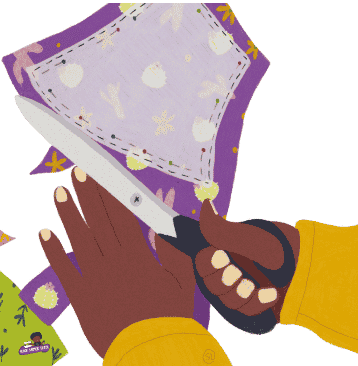Aja Barber’s website, instagram, facebook
Aja Barber’s book, Consumed: The Need for Collective Change
Aja intentionally has only one sponsor, Vestiaire Collective and provides special access to her Patreon supporters.
Aja mentions Fashion Revolution, the world’s largest fashion activism movement
What should everyone watch? Aja says “The Story of Stuff!”
BlackWomenStitch Instagram, homepage, Patreon
Sign up for the Black Women Stitch quarterly newsletter
Check out our merch here
Leave a BACKSTITCH message and tell us about your favorite episode.
Join the Black Women Stitch Patreon
Check out our Amazon Store
Stay Connected:
YouTube: Black Women Stitch
Instagram: Black Women Stitch
Facebook: Stitch Please Podcast



